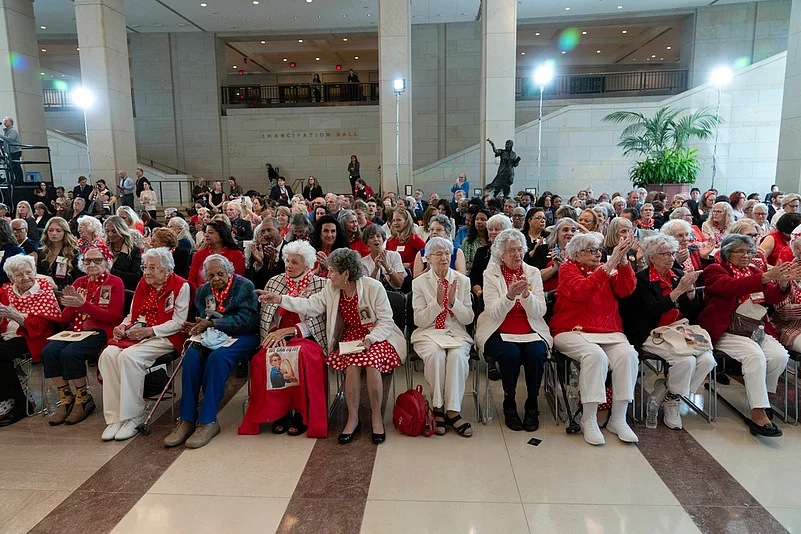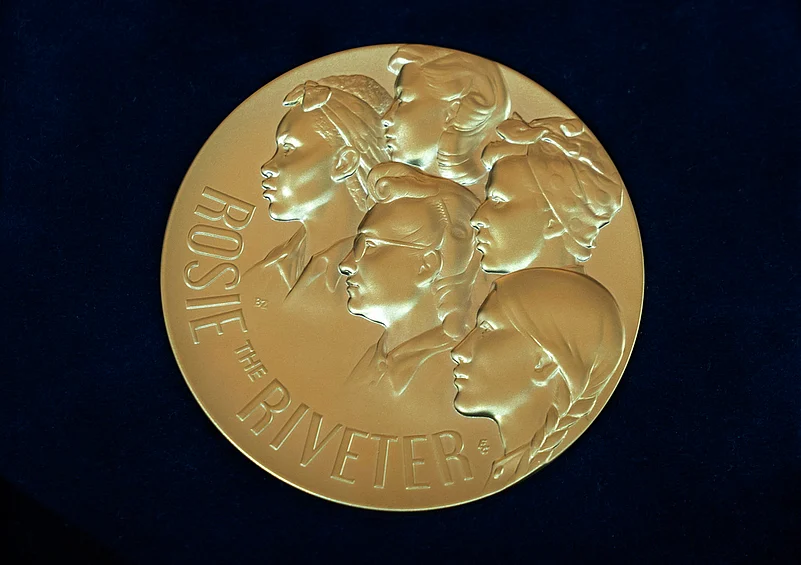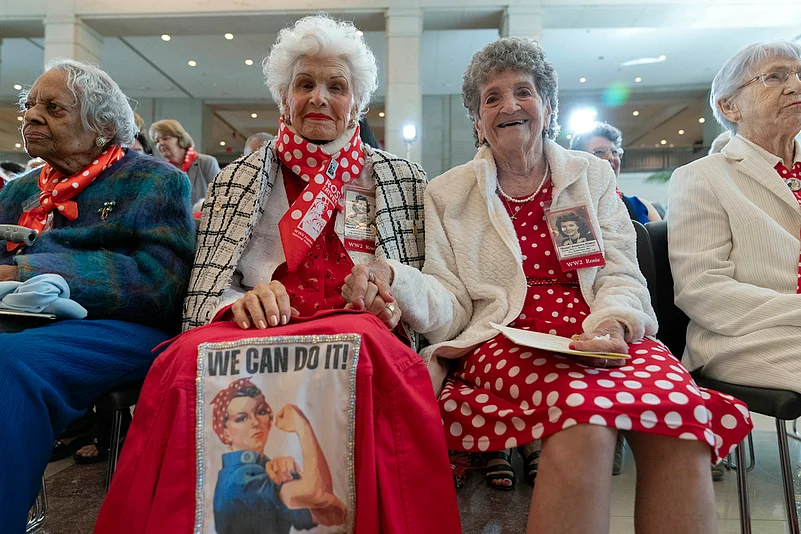Decades after answering the call to duty on the American home front, a group of women known as "Rosie the Riveters" were finally recognized for their vital contributions during World War II. On Wednesday, they received the prestigious Congressional Gold Medal in a ceremony held at the Capitol building, a testament to their unwavering patriotism and service to the nation.
From homemakers to heroes
Following the devastating attack on Pearl Harbor in 1941, millions of American men enlisted in the military, leaving a gaping hole in the industrial workforce. Factories and shipyards, crucial for supplying the war effort, faced a critical labor shortage. In response, American women rose to the occasion, defying traditional gender roles and societal expectations. Stories like Marian Sousa's exemplify this remarkable shift. Just 17 years old at the time, Sousa left her home in California to care for her sister's children while her sister, Phyllis Gould, took a job as a welder in a Bay Area shipyard. Inspired by her sister's courage, Sousa herself soon enrolled in a crash course in engineering drawing at the University of California, Berkeley. Armed with this newfound skill, she joined the workforce, drafting blueprints and revising outdated designs for troop transports. Sousa's story reflects that of millions of other "Rosies" who stepped up to fill vital roles in factories, shipyards, and other critical industries.
The power of "Rosie the Riveter"
These women, along with roughly 6 million others who answered the call to duty, became the embodiment of the now-iconic "Rosie the Riveter" poster. The image of a determined woman with her hair tied back in a kerchief, flexing her bicep and rolling up the sleeve of her denim shirt, became a powerful symbol of female empowerment and patriotism. The "Rosie the Riveter" campaign not only encouraged women to join the workforce but also challenged societal norms, proving women's capabilities in traditionally male-dominated fields like engineering, manufacturing, and shipbuilding.

A long overdue recognition
Despite their immense contributions to the war effort, the "Rosies" went largely unrecognized for decades after the war. Many faced challenges upon returning home, as men returned to the workforce and traditional gender roles reasserted themselves. However, the fight for proper recognition for these women never truly died. Led by individuals like Mae Krier, who herself worked on building B-17 and B-29 bombers at a Boeing factory in Seattle during the war, a dedicated group persisted in their efforts. Finally, in 2020, Congress authorized the Congressional Gold Medal, a prestigious award bestowed upon those who have rendered exceptional service to the nation.

The ceremony at the Capitol on Wednesday was a remarkable occasion, filled with both celebration and reflection. Over two dozen "Rosies," many in their late 90s, donned the red and white polka-dotted attire reminiscent of the iconic poster, as they received the Congressional Gold Medal. Marian Sousa, now 98, spoke for many when she said, "We never thought we'd be recognized… We were just doing the job for the country." However, the impact of their service is undeniable. These women not only played a crucial role in securing Allied victory in World War II, but also forever changed the landscape of the American workforce, paving the way for future generations of women to pursue careers previously considered out of reach.

National Rosie the Riveter Day
As Senators Collins and Casey highlighted, the "Rosies" shattered stereotypes and paved the way for a more equitable workforce. National Rosie the Riveter Day on March 21st serves as a yearly reminder of their groundbreaking achievements. And perhaps most importantly, Mae Krier's message – "We can do it!" – continues to resonate with a new generation. It's a timeless mantra that empowers young girls to dream big, break down barriers, and achieve anything they set their minds to.

























